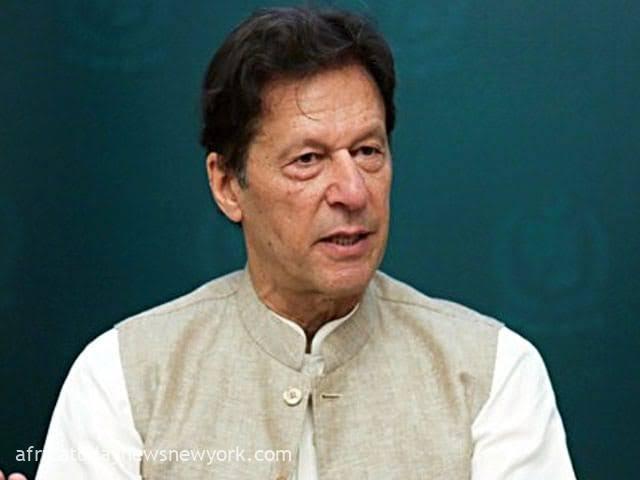Less than two weeks before the upcoming election, former Pakistan Prime Minister Imran Khan received a 10-year prison sentence on Tuesday, dealing a significant blow to his party’s ability to participate in the electoral process.
The sentence for Imran Khan was handed down within the confines of Adiala Jail, where he has been held for an extended duration since his arrest in August. He claims that the orchestrated series of court cases is a calculated strategy to prevent his return to office.
The sentence handed down to Imran Khan was also replicated for Shah Mehmood Qureshi, the vice-president of the Pakistan Tehreek-e-Insaf (PTI) party and former foreign minister.
“Former prime minister Imran Khan and PTI vice-president Qureshi have been sentenced to 10 years each,” a spokesman for the party told AFP.
Reports on the convictions and sentences were disseminated by state media. The allegations against both men were rooted in claims of leaking classified state documents.
Imran Khan served as prime minister from 2018 to 2022 until he was ousted in a no-confidence vote, having lost the support of the nation’s military kingmakers.
In his capacity as opposition leader, he waged an unprecedented campaign of defiance against the top brass, accusing them of orchestrating his ousting in a US-backed conspiracy and plotting an assassination attempt that left him wounded.
Imran Khan’s temporary arrest in May prompted unrest in Islamabad, which was then exploited as a justification for a wide-ranging crackdown on PTI, resulting in the defection or concealment of many senior leaders.
“This is murder of justice,” said Tauseef Ahmed Khan, a human right activist and political analyst.
Read also: Ex-PM Imran Khan’s Counsel Initiates Legal Challenge
“But his popularity among the people will grow in leaps and bounds as his sympathisers will increase because of this gross injustice.”
In the run-up to the elections, PTI’s presence in the public sphere has been minimal, with the party losing its election symbol, and candidates obligated to run as individuals.
Concurrently, Nawaz Sharif, the leader of one of the dynastic parties historically at the helm in Pakistan, has come back from self-imposed exile, with his various convictions unraveling in the courts.
The clearance of Nawaz Sharif, a three-time former prime minister, is viewed by analysts as a signal that he is the preferred candidate of the top brass, which has historically held direct control over Pakistan.
As stipulated by Pakistan’s constitution, elections must take place within 90 days of parliament’s dissolution, a process initiated five months ago in August.
The delay in elections was ascribed by the election commission to the requirement of redrawing constituency boundaries post a new census in 2023.
In the interim, Pakistan has been governed by a caretaker government seen as accommodating to the military establishment.

